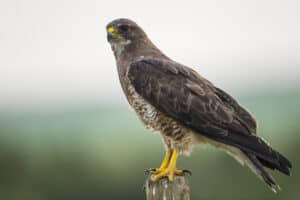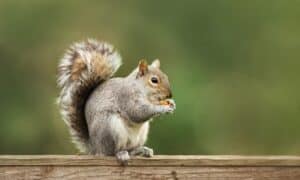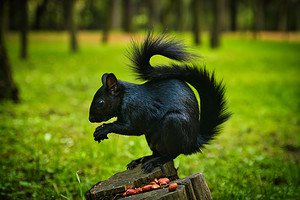Think of squirrels. The picture in your mind probably depends greatly on where you live. You may adore these fluffy creatures or despise them. Watching squirrels can provide hours of entertainment, and feeding them can be a lot of fun for people of all ages. But squirrels can also wreak havoc on homes and other structures, gnawing holes and building nests in places they don’t belong. Whether you want to bring these animals closer or repel them, you should know what kinds of smells attract squirrels like magnets.
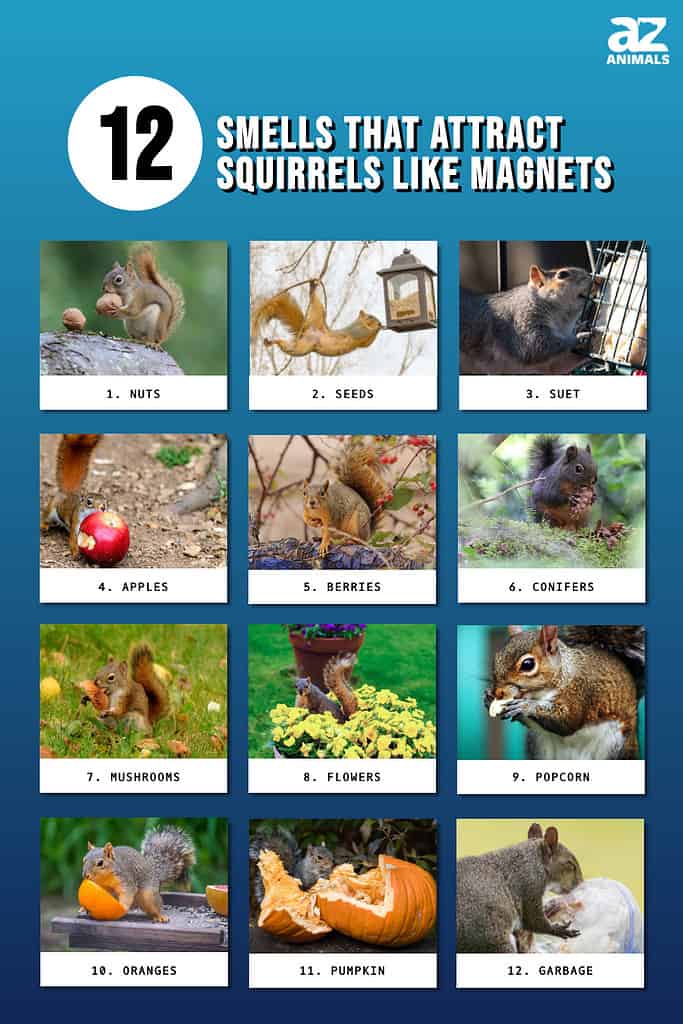
So Many Types of Squirrels
Squirrels belong to the rodent family Sciuridae, which currently contains 285 species. Squirrels of various types are found on every continent except Antarctica, including Australia, where they were introduced in the late 1800s. They live in habitats ranging from the Arctic tundra to tropical rainforests and just about everywhere in between. More than 80 of these species belong to the Sciurinae family of tree squirrels and flying squirrels, while nearly 150 belong to the Xerinae family of ground squirrels, which includes prairie dogs, chipmunks, groundhogs, and marmots.
Scents Squirrels Tend to Love
With so many different types of squirrels all over the world, how can you know what smells attract the ones in your vicinity? Certain scents might appeal to some species more than others. However, virtually all the different types of squirrels are primarily herbivorous. Like most other rodents, they love the smells of tasty nuts, seeds, and fruits.
This list of smells that attract squirrels includes many items they find highly enticing. It is not an exhaustive list. The squirrels that live near you may love certain other scents even more. Take time to watch them and see how they react to the odors in your shared environment. If you want to repel squirrels, try to eliminate the smells that attract them from your space. If you want to attract them, spread these scents around and watch from a distance.
Nuts
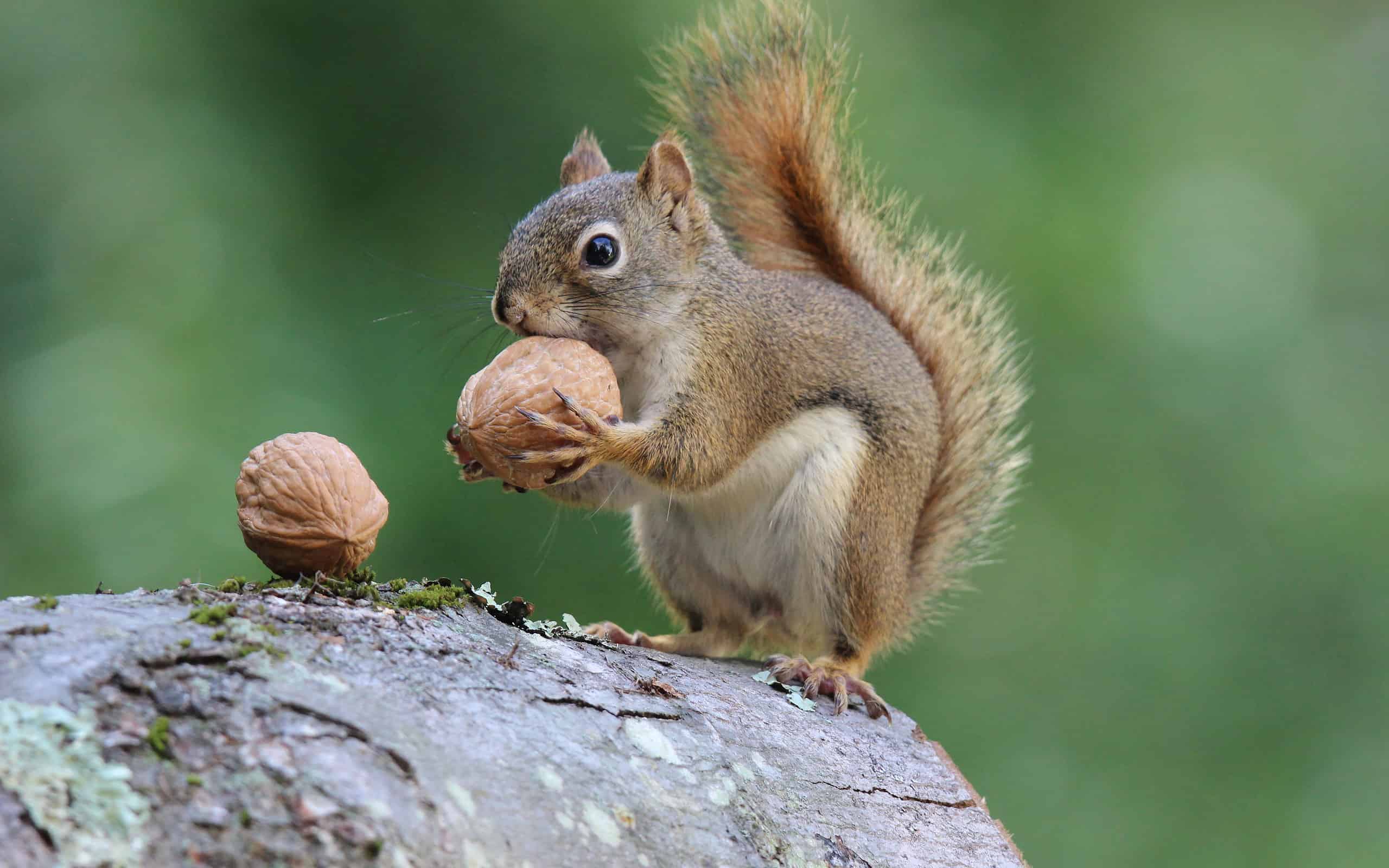
Whether growing on a backyard tree or offered in a dish, squirrels find nuts irresistible.
©suefeldberg/iStock / Getty Images Plus via Getty Images
Anyone who has ever lived in a home with a walnut or pecan tree in the backyard knows how eagerly squirrels gather nuts. They also very quickly find and procure any nuts offered up by humans. Squirrels can hardly resist the smell of nuts. Many squirrels even bury nuts underground or cache them in trees and use their keen senses to come back and retrieve them later. You probably should not plant a nut tree in your yard if you hate having squirrels around.
Seeds
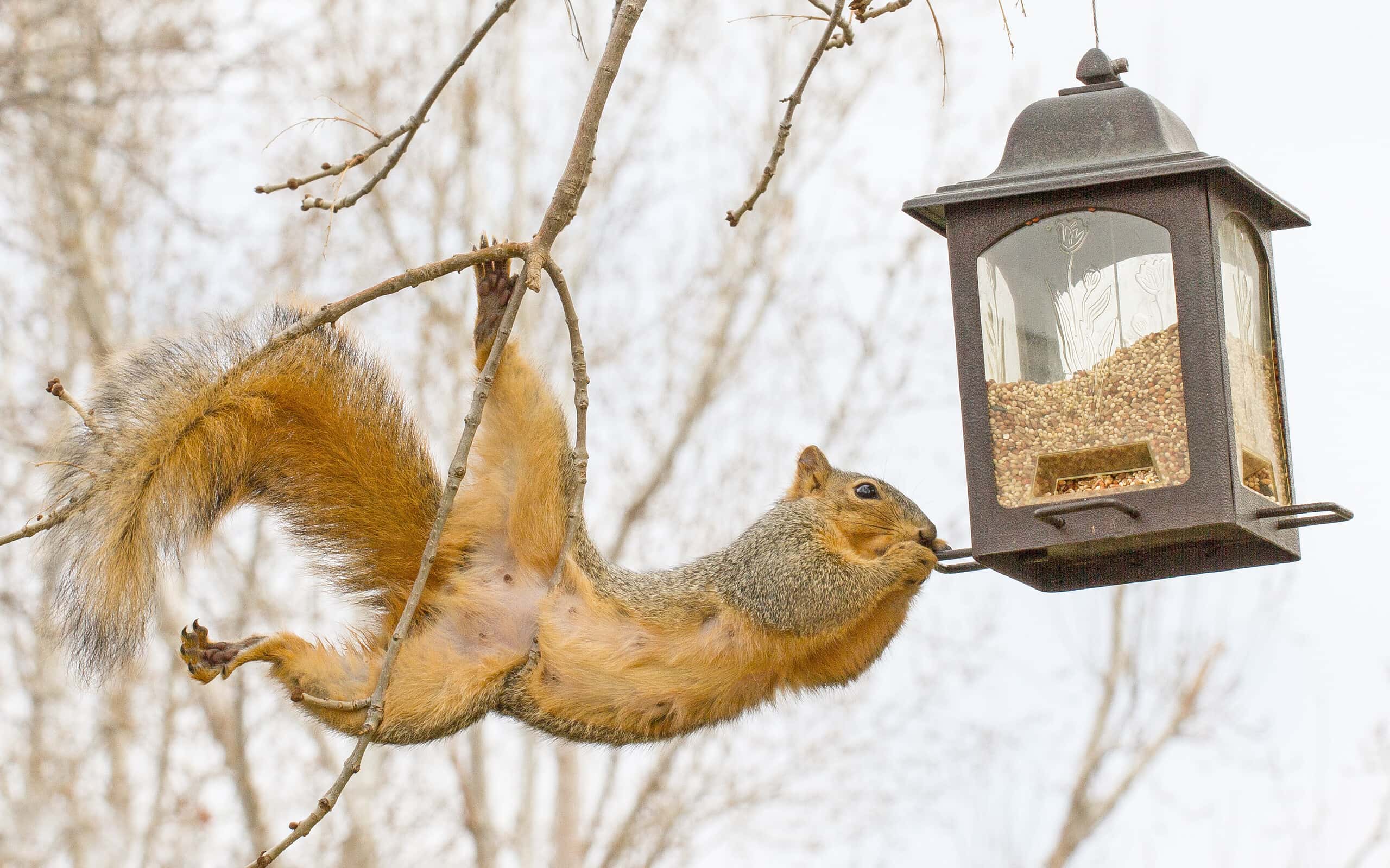
Squirrels will perform amazing acrobatic feats to obtain seeds.
©blewulis/iStock via Getty Images
Other smells that strongly attract squirrels are the scents of dried seeds. Frustrated bird lovers often fill their feeders with fresh seeds only to find squirrels attacking with gusto. Hungry squirrels engage in acrobatic maneuvers that seemingly defy gravity to get at those delicious seeds. You can try to dissuade them with supposedly squirrel-proof feeders, or you can toss them some seeds of their own, depending on whether you want to keep them coming back or chase them away.
Suet
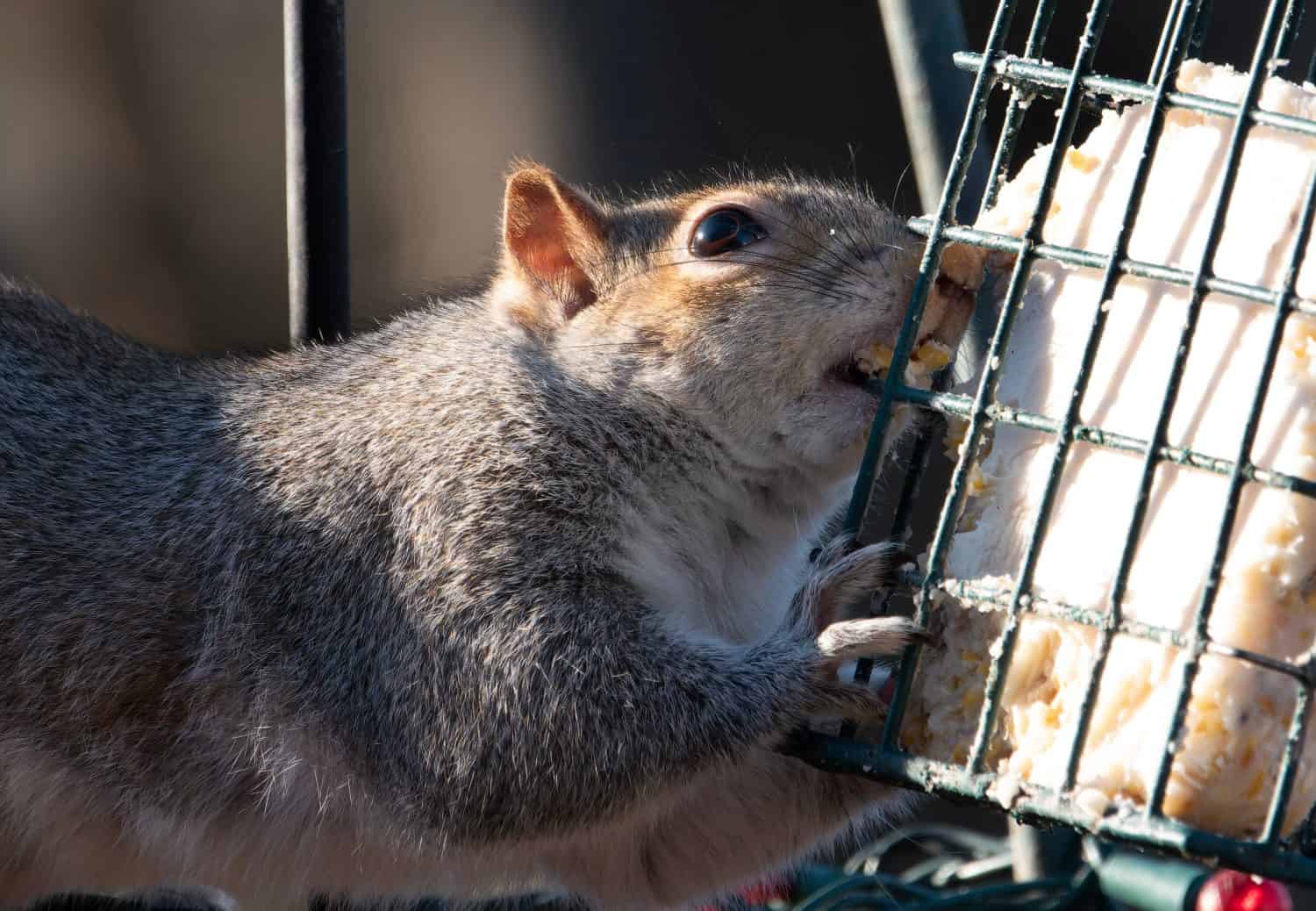
Like seeds, the different smells of suet powerfully attract squirrels.
©711073/Shutterstock.com
Suet combines seeds with different types of protein and fats. People usually put suet out for birds during the winter, when they need extra protein and fat. Squirrels need these resources, too, and the smells associated with suet will certainly attract them to your feeder.
Apples
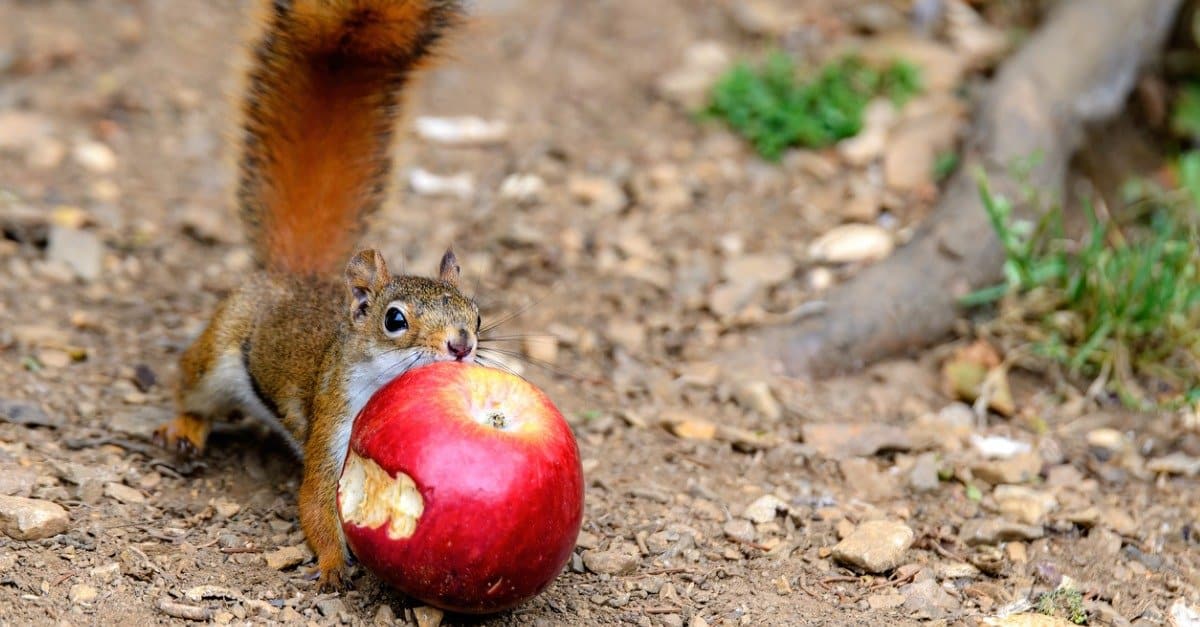
Squirrels love apples, whether fallen from a tree or placed in a feeder.
©Doug McLean/Shutterstock.com
Even blindfolded, you could most likely recognize the delightful scent of fresh apples. Squirrels have a much more developed sense of smell than humans, and apples provide an almost irresistible scent. Whether the apples have fallen from a tree or been tossed out as scraps, squirrels may happily follow that smell.
Berries
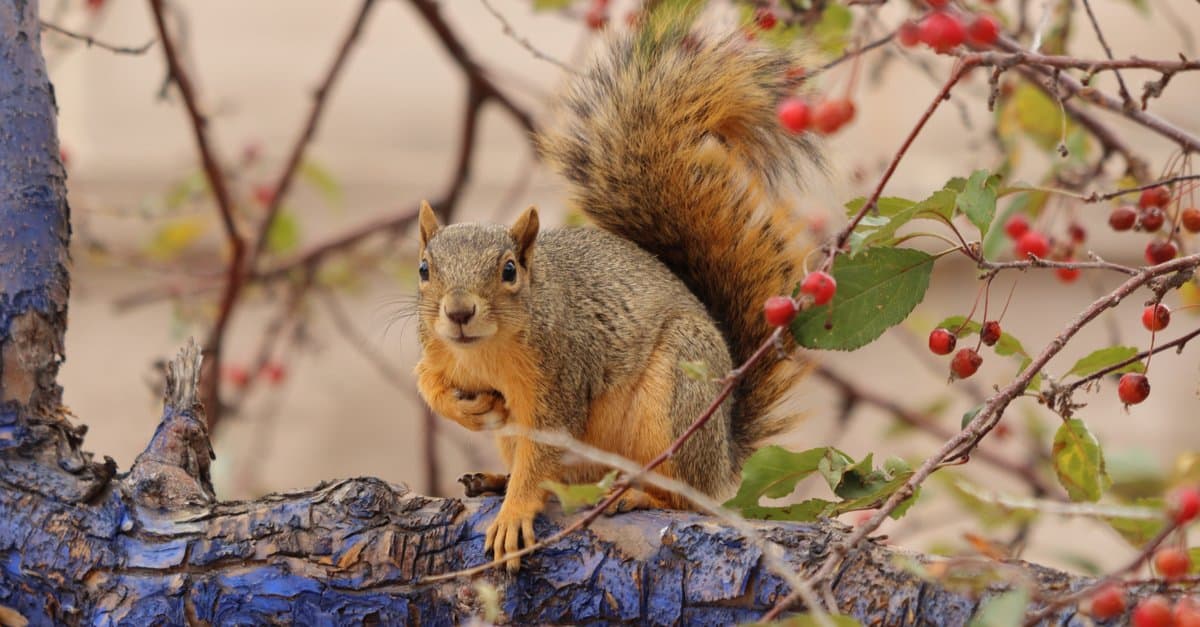
Berries of many varieties also entice squirrels, particularly in the late summer or fall.
©Vaclav Matous/Shutterstock.com
As the weather gets cooler many trees and bushes put on berries. The smells of these berries attract squirrels, along with birds and other animals. Berries provide an important source of nutrition, especially as squirrels work to fatten up before winter.
Conifers
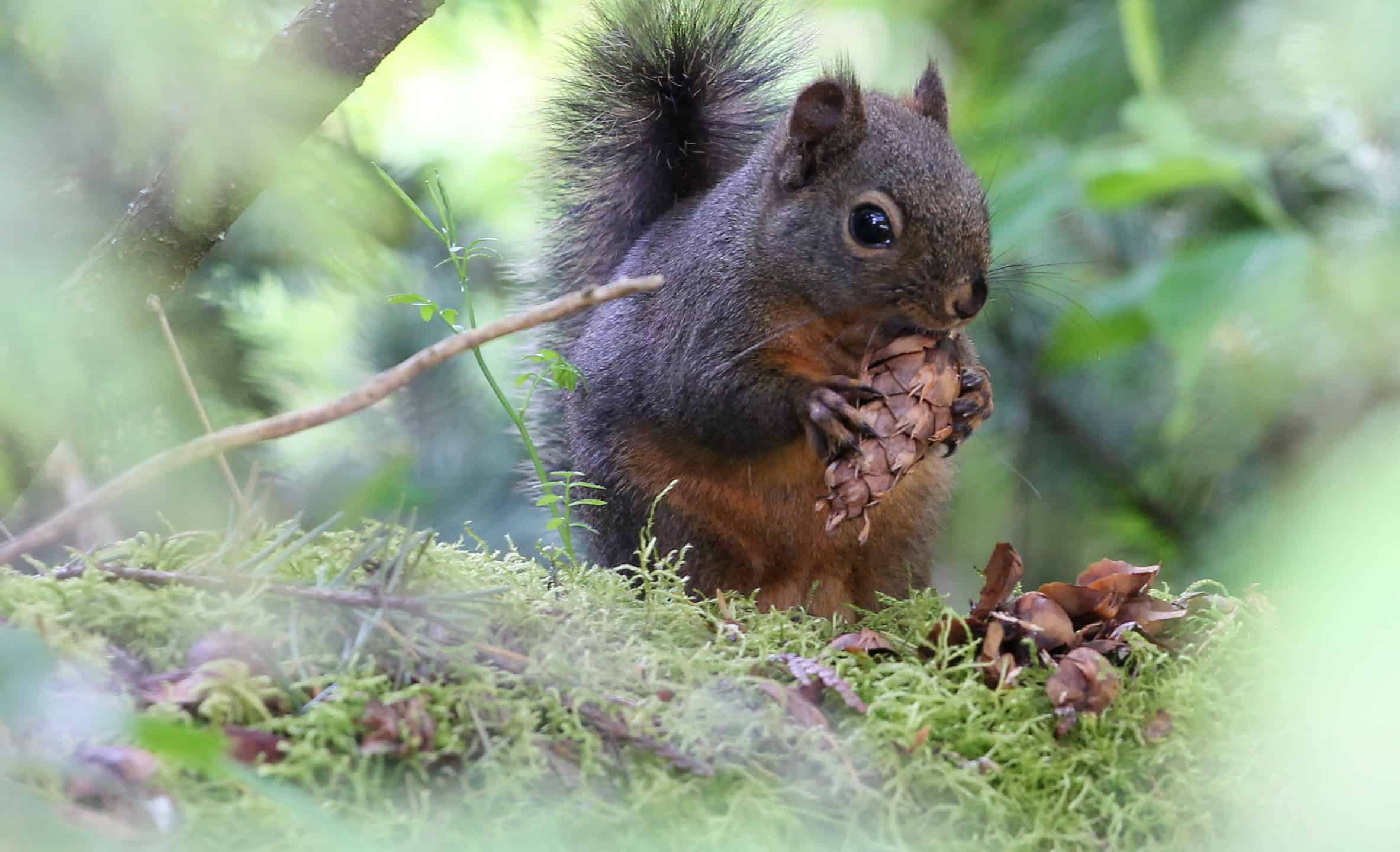
Conifers can provide nutrition for squirrels when few other sources remain.
©Randy Bjorklund/Shutterstock.com
You may be surprised to learn that the smells of various conifers can attract squirrels. Not only do different types of squirrels eat the seeds found in the female cones, but they also munch on buds. Unfortunately, to get to the tasty buds, they tend to strip young branches from the trees and can cause extensive damage. Offering squirrels alternate food sources in the winter may help deter them from stripping conifers.
Mushrooms
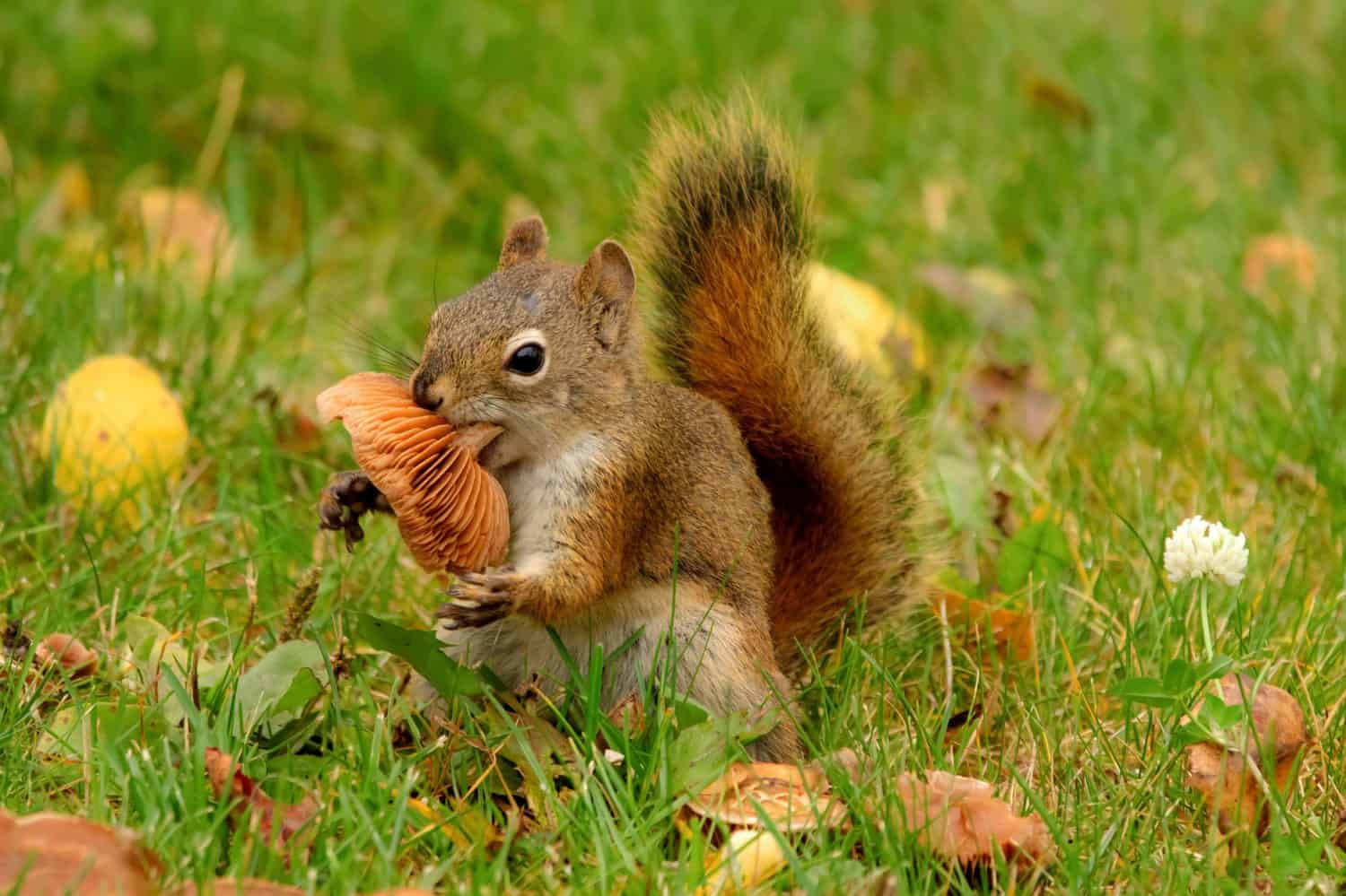
Do not assume that the mushrooms that attract squirrels are safe for human consumption!
©Saeedatun/Shutterstock.com
Squirrels may be attracted to the scent of mushrooms growing in your yard. They may eat the mushrooms they find immediately or dry them in the trees and cache them for later when the winter makes food sources scarce. Some types of squirrels can even eat toxic mushrooms without apparent harm.
Flowers
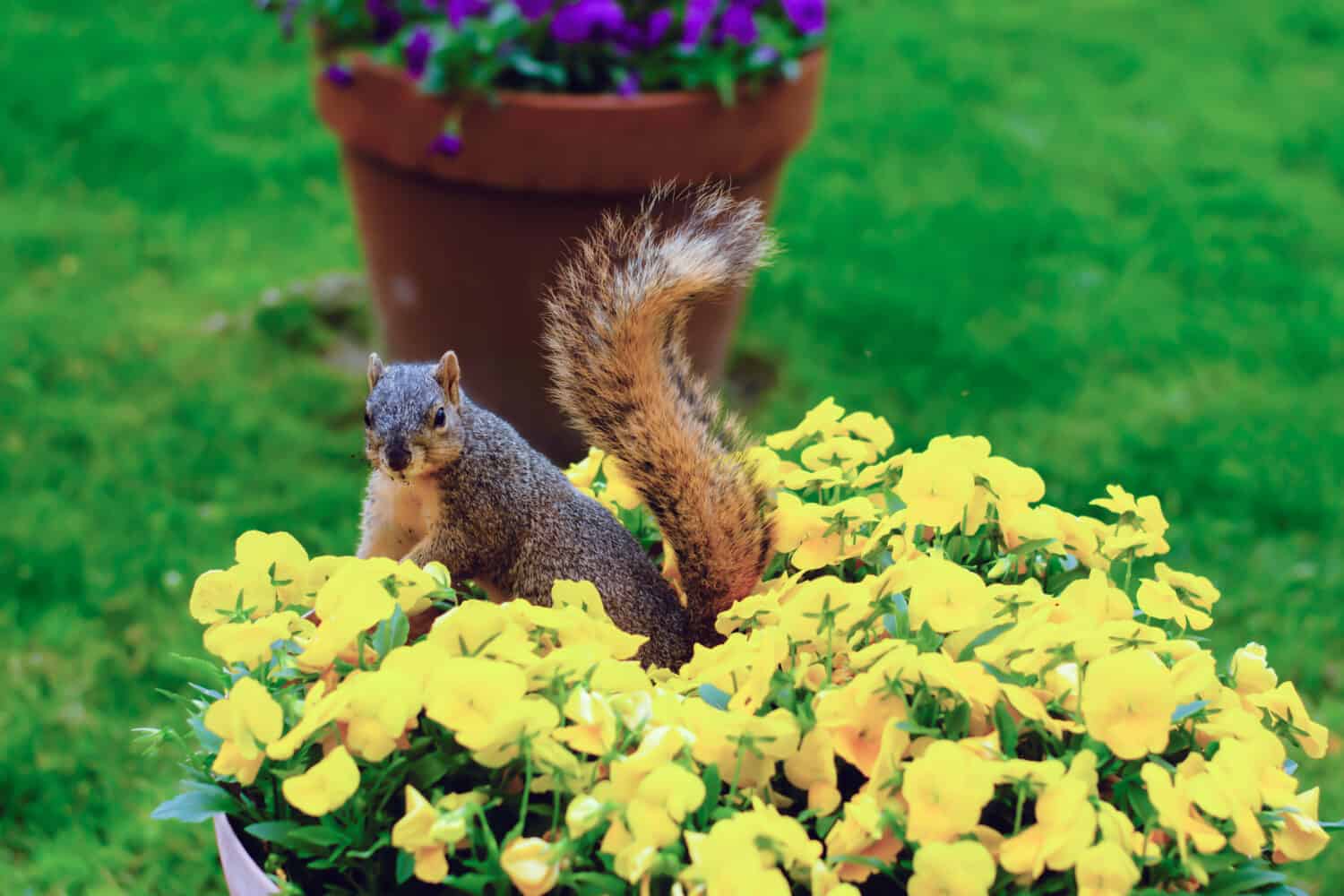
The smells of some types of edible flowers strongly attract squirrels.
©Alissala/Shutterstock.com
Squirrels love to eat some varieties of flowers. These include daisies, pansies, petunias, and more. The smells of other types of flowers, including geraniums, marigolds, daffodils, and hyacinths, reportedly deter squirrels rather than attract them.
Popcorn
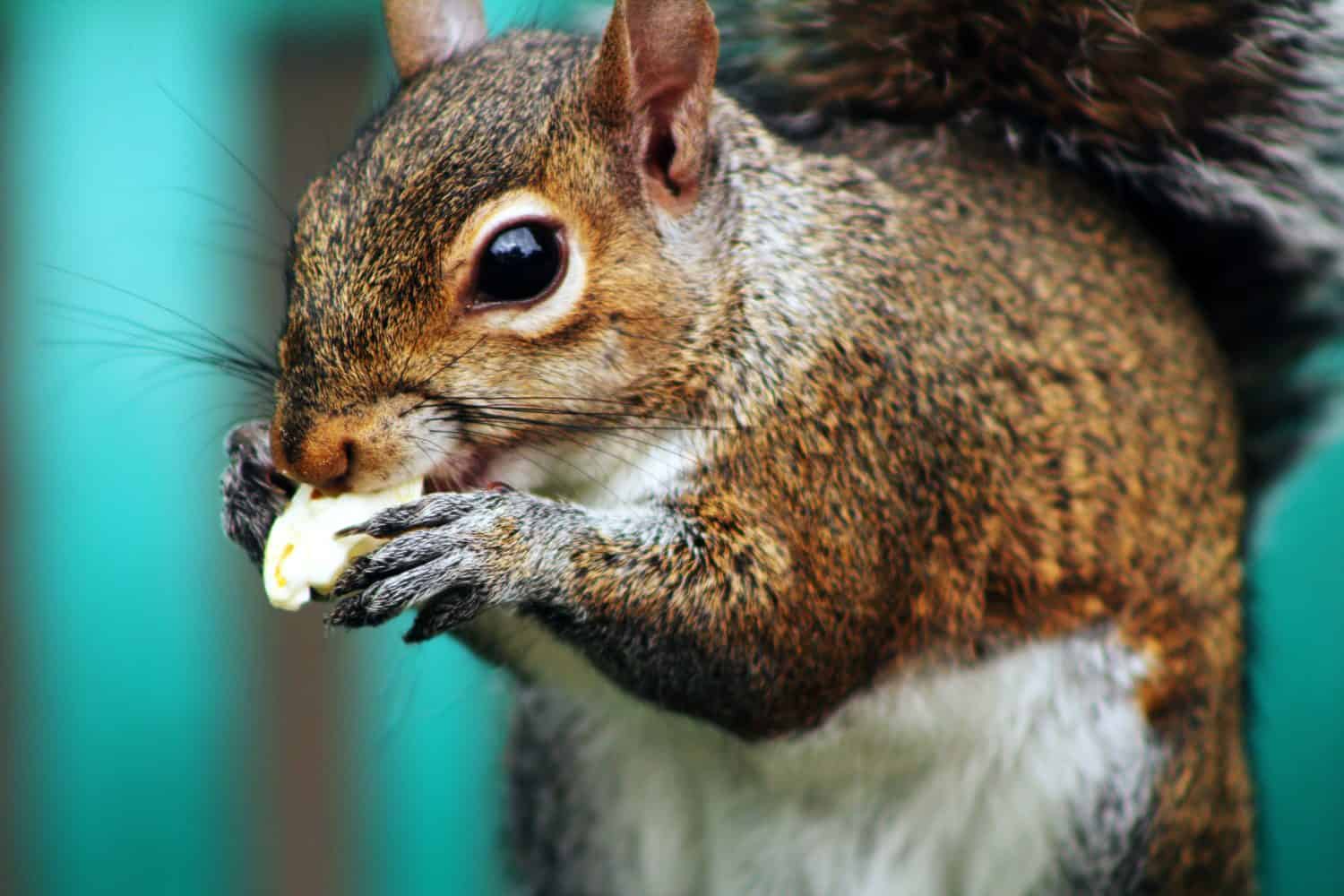
Like most humans, squirrels love the smell of popcorn.
©Photographic Views/Shutterstock.com
Squirrels can barely resist the smell of warm, salty popcorn. If you want to attract squirrels, this is one sure treat to try. Don’t butter the popcorn, though. That can be hard for a squirrel to digest. Just lightly salt it and toss it out for the squirrels to find. That is if you want to lure them closer.
Oranges
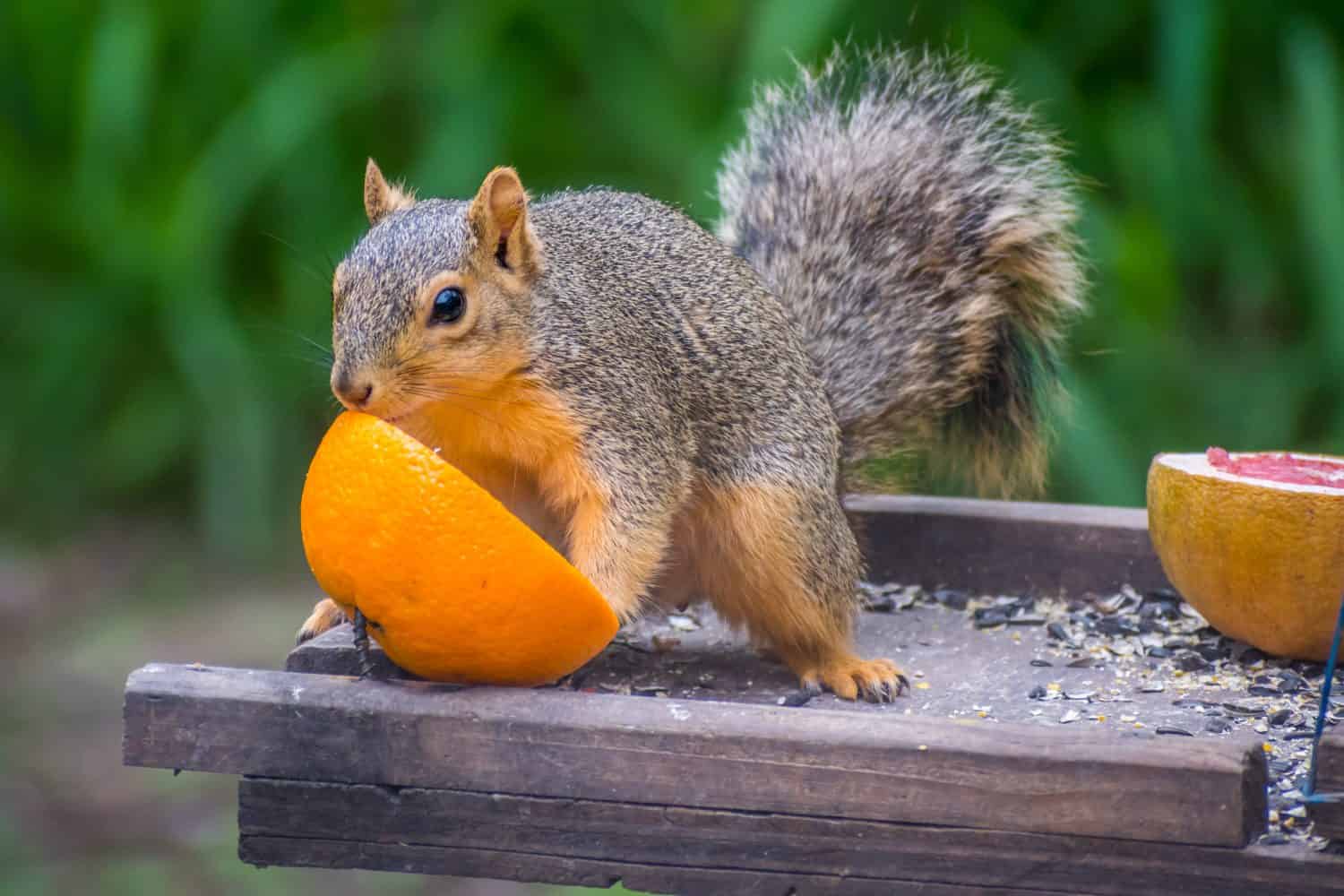
Many squirrels love the scent of fresh oranges.
©Cheri Alguire/Shutterstock.com
Anyone who has tried feeding Baltimore orioles probably knows that the smell of fresh oranges can attract squirrels, too. These fragrant fruits have a strong aroma that squirrels may detect from a distance.
Pumpkin
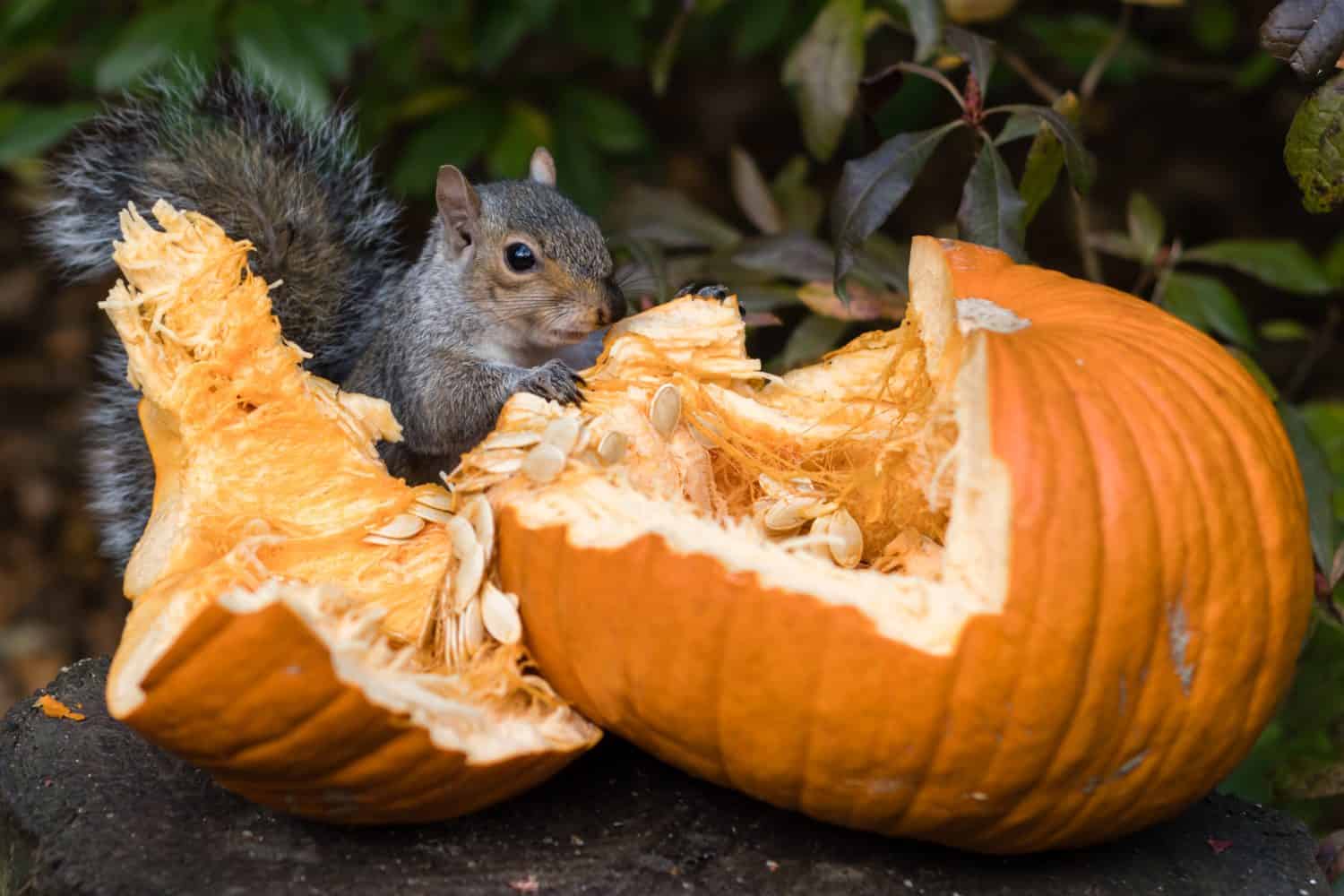
Squirrels may feast on pumpkins in the fall.
©Ian Fox/Shutterstock.com
Humans bring pumpkins into urban and suburban areas in massive quantities in the fall. Whether for cooking or decorating, pumpkins abound. The smells associated with pumpkins, whether whole or just the discarded seeds, may attract squirrels to the jack-o-lantern on your front porch or the bags at your curb.
Garbage
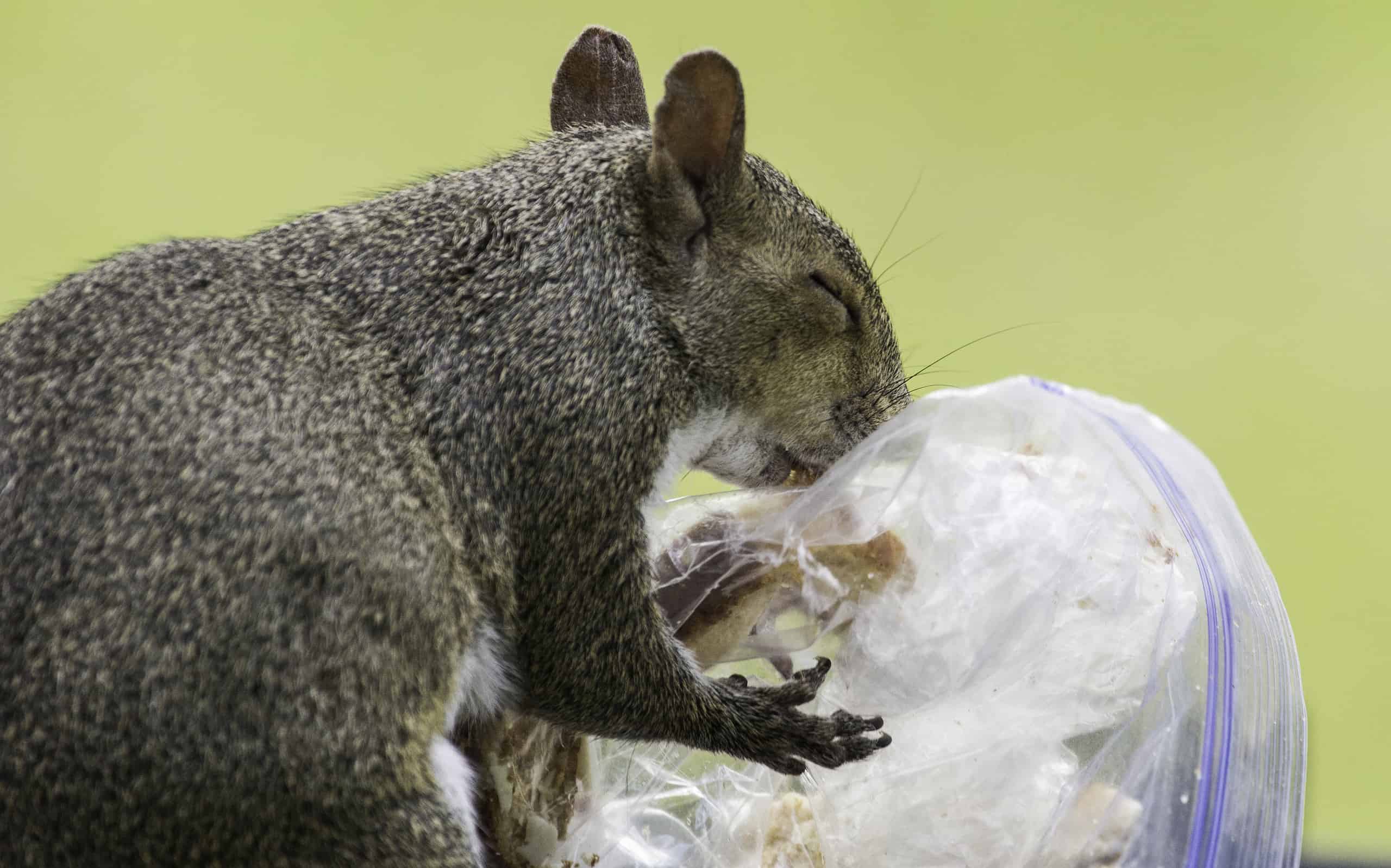
Your garbage can contain all sorts of enticing smells that attract squirrels.
©JZHunt/iStock via Getty Images
Any of the smells above, alone or in combination, can attract squirrels to your garbage like a magnet. An old peanut butter and jelly sandwich, for instance, has the irresistible aromas of roasted peanuts and fruit. You probably don’t want squirrels in your garbage, though. They can make a terrible mess, and the other things in your trash could be hazardous to their health. Whether you want to attract or repel squirrels, make sure you contain all garbage in secure cans or other receptacles that keep out squirrels and other animals.
The photo featured at the top of this post is © Saeedatun/Shutterstock.com
Thank you for reading! Have some feedback for us? Contact the AZ Animals editorial team.




